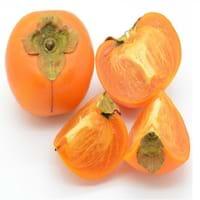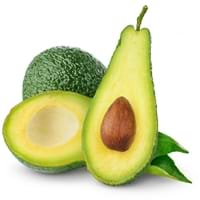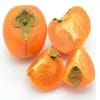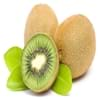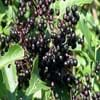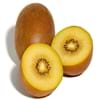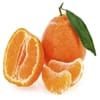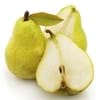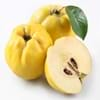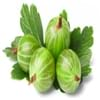Health Benefits
Cancer prevention, Heart care, Heat stroke treatment, Improves eye vision, Weight loss properties
Cancer prevention, Natural detoxification, Osteoporosis prevention, Protection from chronic disease
General Benefits
Anti-inflammatory properties, Boosts immune system, Cures cough, Digestive aid, Fights against infections, Improves blood circulation
Boosts immune system, Controls blood pressure, Digestive aid, Improves eye vision, Maintains healthy cholesterol level
Skin Benefits
Anti-aging benefits, Brightens and lightens complexion, Reduces wrinkles
Brightens and lightens complexion, Reduces wrinkles, Skin cleansing, Treatment of dark spots
Hair Benefits
Promotes longer and healthier hair, Protects hair
Acts as moisturizer, Good conditioner, Protects hair, Regulates hair growth, Rejuvenates scalp, Remedy for split ends, Shiny hair, Softening mask
Allergy Symptoms
Abdominal pains, Anaphylaxis, Inflammation
Abdominal pains, Anaphylaxis, Inflammation, Itching, Latex Allergy, Nasal congestion, Skin Rashes, Swallowing difficulties, Swelling, Upset stomach, Vomiting, Wheezing
Side Effects
Diarrhoea, Might affect blood pressure level
Allergic reaction, Hypersensitivity, Weight gain
Best Time to Eat
Along with meal, As a snack in the late afternoon, Don't consume at night and before bed, Morning time (before lunch)
Along with meal, As a snack in the late afternoon, Don't consume at night and before bed, Don't eat after meal
Vitamin B5 (Pantothenic Acid)
Not Available
Vitamin C (Ascorbic Acid)
Vitamin K (Phyllochinone)
Calories in Fresh Fruit with Peel
Calories in Fresh Fruit without Peel
Not Available
Not Available
Calories in Frozen Form
Not Available
Calories in Canned Form
Not Available
Not Available
Type
Berry, Tree fruit
Berry, Tree fruit, Tropical
Season
Autumn, Winter
Summer
Varieties
Fuyu, Jiro, Gosho, Suruga, Hiratanenashi, Hachiya, Aizumishirazu, Yotsumizo, Yokono, Costata, Ormond and Tamopan
Bacon, Fuerte, Gwen, Hass, Lamb Hass, Pinkerton, Reed and Zutano
Color
Orange, Red, Yellow
Dark green
Inside Color
Orange
White
Origin
Burma, China, India, Japan
Mexico, Central America
Soil Type
Sandy loam, Well-drained
Decomposed Granite, Limestone, Sandy loam, Well-aerated
Climatic Conditions
Can tolerate wide range of climates
Humid, Without frosts
Facts about
- Unripe persimmons contain lots of tannin which is used to brew sake & to preserve wood in Japan.
- A small non-edible fruit of persimmon tree is crushed with water, the solution is painted on paper & used to repel mosquitoes.
- The oldest living avocado tree is found in University of California and was planted in 1879.
- Avocados can be swapped for butter in Baked Goods Recipes.
- Avocado ripens more quickly with a banana or an apple around.
Spirits
Not Available
Yes
Cocktails
Not Available
Yes
Top Producer
China
Mexico
Other Countries
Azerbaijan, Brazil, Israel, Italy, Japan, Pakistan
Chile, China, Colombia, Dominican Republic, Indonesia, Kenya, Mexico, Peru, Rwanda, United States of America
Top Importer
United States of America
United States of America
Top Exporter
Japan
Mexico
Botanical Name
Diospyros kaki
Persea Americana
Synonym
Not Available
Persea Gratissima
Subkingdom
Tracheobionta
Tracheobionta
Division
Magnoliophyta
Magnoliophyta
Class
Magnoliopsida
Magnoliopsida
Subclass
Dillenhidae
Magnollidae
Family
Ebenaceae
Lauraceae
Species
D. kaki
P. Americana
Generic Group
Not Available
Laurel
Difference Between Japanese Persimmon and Avocado
We might think that Japanese Persimmon and Avocado are similar with respect to nutritional value and health benefits. But the nutrient content of both fruits is different. Japanese Persimmon and Avocado Facts such as their taste, shape, color, and size are also distinct. The difference between Japanese Persimmon and Avocado is explained here.
The amount of calories in 100 gm of fresh Japanese Persimmon and Avocado with peel is 70.00 kcal and 160.00 kcal and the amount of calories without peel is Not Available and Not Available respectively. Thus, Japanese Persimmon and Avocado belong to and category.These fruits might or might not differ with respect to their scientific classification. The order of Japanese Persimmon and Avocado is Ericales and Laurales respectively. Japanese Persimmon belongs to Ebenaceae family and Avocado belongs to Lauraceae family. Japanese Persimmon belongs to Diospyros genus of D. kaki species and Avocado belongs to Persea genus of P. Americana species. Beings plants, both fruits belong to Plantae Kingdom.
